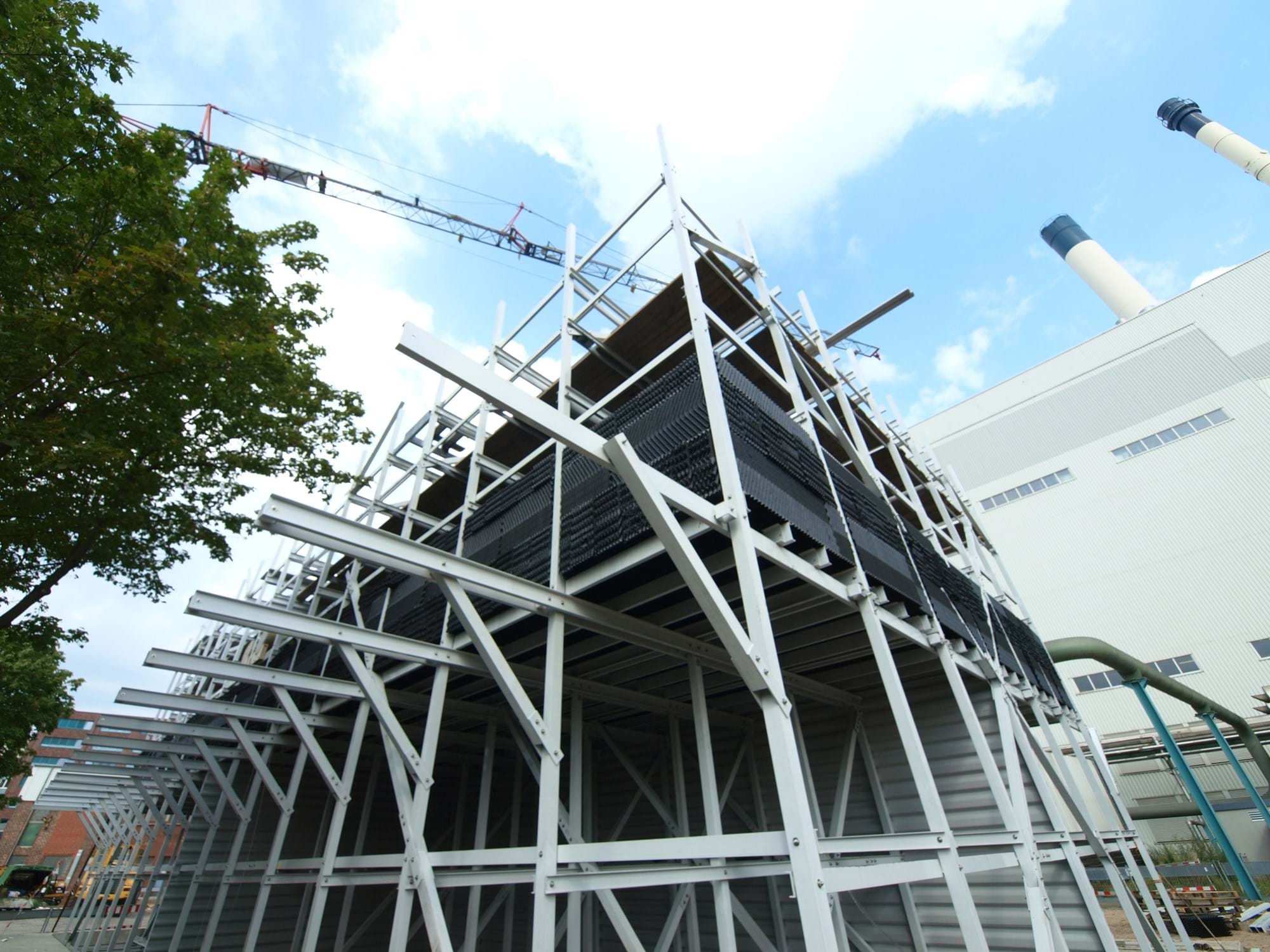

Fibreglass profiles are well-suited to the demanding environment in cooling towers, as the profiles can survive a long time despite being constantly exposed to water.
Our fibreglass profiles are corrosion-free, which increases the lifetime of the cooling tower. Profiles in cooling towers are constantly exposed to water, but thanks to the profiles' unique durability and strength, they still have a long lifetime. This reduces the number of repairs and the maintenance needed, and thus also the amount of time the cooling tower is out of operation.
Fibreglass profiles from Fiberline can be used as the load-bearing structure in a cell tower, precisely because they are resistant to corrosion and weathering. In a naturally ventilated cooling tower, the profiles can, for example, form the internal structure for mounting mechanical units and installations.
It is also the corrosion resistance of the profiles that makes them so suitable for the roof and side cladding on cooling towers, where profiles are constantly exposed to water. Here, it is the Fiberline Plank in particular that is used - and you can also use fibreglass profiles for walkways and railings. Our planks and gratings can be supplied with sand coating for a non-slip surface.
Our GRP fibreglass profiles are extremely strong, lightweight and corrosion-resistant, a combination of features not found in other building materials such as timber, concrete and steel. This makes for easier handling of the profiles, and the cooling towers can also be prefabricated to minimise on-site construction. Our profiles are also CE marked, which is not only your guarantee of consistent high quality but also eliminates the need for additional approvals from building authorities ahead of construction.
Our products are CE certified according to the EN13706 1-3 standard. This certification is your guarantee of consistently high quality every time you buy from us and use our products. Read more
Fiberglass enables lightweight and robust constructions, making installation faster. Although the material is comparable to steel, the specific weight of Fiberglass is only a quarter of steel. Read more
Fiberglass is an exceptionally strong material, rivaling steel, aluminum, and wood. Composite profiles offer similar weight to aluminum, while being just 20% the weight of concrete and 40% of steel, making them highly efficient. Read more
Composite materials are generally very durable, with only a few exceptions. They resist a variety of aggressive liquids and environments, resulting in long lifespan and minimal need for maintenance. Read more
Fiberglass is UV-resistant and can withstand temperatures between -40 and +80 degrees Celsius without deterioration of its properties. Additionally, it tolerates seawater and other atmospheric influences. Read more
Fiberglass profiles are electrically insulating. They are suitable for use in connection with all electrical constructions, such as along railway tracks, power plant installations, etc., as they are suitable for both low and medium voltage. Read more
The processing of fiberglass profiles is significantly easier than for metals such as steel, and just as efficient as for wood. This makes it easy to handle solutions with our profiles on site. Read more
Fiberline's fiberglass profiles have a significantly higher thermal insulating capacity compared to steel and aluminum. Read more
Fiberline's products are manufactured energy-efficiently through pultrusion. The low weight relative to strength and long lifespan make them a cost- and energy-efficient alternative. Read more